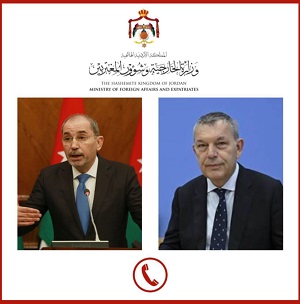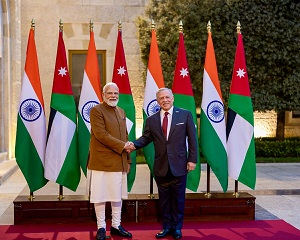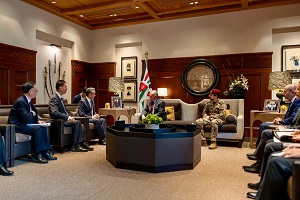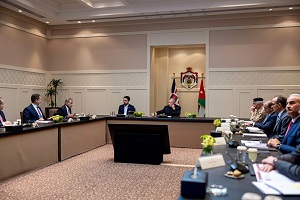Aden and the Battle on Eid’s Eve - By Abdulrahman Al-Rashed, Asharq Al-Awsat
Amid the blessings of Eid, the emotional behavior of Yemen’s Southern Transitional Council (STC) almost resulted in a tragedy that would have lasted years to come. The council came close to destroying recent achievements in the country and all but ruined its political project of independence from Sanaa in the future — a goal that cannot be achieved by defiance, fueling enmity or creating chaos.
The battle on Eid’s eve erupted following two attacks on Thursday when an Al-Qaeda suicide car bombing on a police station killed 13 people and a Houthi strike using a ballistic missile or drone targeted a training center, killing 32, including the commander of the First Brigade, who is from the south. Aden was filled with funerals and calls for revenge, but the anger was directed at the Saudi-led coalition forces, which have chosen Aden as the provisional capital and the seat of the government. The STC, a political movement that was established during the Cold War and later collapsed with the fall of the former USSR in 1990 and which hopes to establish an independent state in South Yemen, led the retaliation.
South Yemen has the right to seek to establish an independent state, but the STC’s actions reinforce the Houthi coup and Iran’s infiltration, perpetuate the civil war, and threaten to open new war fronts in Yemen with the support of Qatar and Turkey. It is a dangerous development that also threatens the security of the regional countries, primarily Saudi Arabia.
Perhaps the STC thought it could take advantage of the Saudi-led coalition’s weakness, embarrass the coalition’s member states, use the anger in Aden following the two horrific attacks as a pretext to seize control, and declare secession and the establishment of the new state, but possibly it failed to take into consideration the more complex and dangerous implications.
The dream of secession exists around the world, but is rarely achieved. Close to Yemen and the west of the Gulf of Aden, Somaliland’s experience offers a lesson for the STC. Somaliland is a province that declared itself an independent republic in 1991 following the collapse of Somalia. It established an integrated political system with a constitution, two Houses of Parliament, a currency, a flag, and elections. Until today, Somaliland has remained a stable model “country,” but technically it is not recognized as a legitimate state.
The history of Somaliland is similar to South Yemen. The Somaliland region was not part of Somalia at the beginning of the 20th century, and it voluntarily agreed to unity. When civil war erupted, the region separated, but the UN refused to recognize it. Thus, it will have to return to Mogadishu’s rule unless it is legally and consensually separated. This is a living example for Yemeni separatists, and there are many others, most notably the Kurdistan region of Iraq. Kurds are a distinct ethnic group with their own language and, historically, their region was forcibly annexed to Baghdad during British rule. Despite all these considerations and five decades of demanding independence, the international community has thwarted their attempts at self-rule. The independence of Kurdistan requires the approval of Baghdad and the states of the region.
In my opinion, South Yemen can achieve independence, but its approach was wrong in language and action. It needs to convince Sanaa after liberation and the return of political life. Without Sanaa’s approval, South Yemen cannot win the approval of the UN or the acceptance of regionally important states. “North” Yemen might accept a political formula suitable for both parties under objective circumstances.
I do not wish to anger my brothers, the politicians of South Yemen, but I must remind them that the south has long suffered from conflict between those seeking power. The British had to name 12 sultans and princes to rule the south. And so did the Soviet Union with the support of the EU troika — it named three communists to rule Aden. At the time, President Ali Salem Al-Baid had to go to Sanaa and hand over the keys of his capital, Aden, not because he was in favor of Yemen’s unity, but because he wanted to prevent his rivals from seizing control in South Yemen. That is why, today, we fear that without a peaceful transition, political consensus and universal ratification, South Yemen will be divided into smaller states fighting each other. If this happens, evil states such as Iran will find new territory to infiltrate.
In effect, the STC shot itself in the foot and hit its project in the heart, raising suspicions and wounding its regional relationship. No one applauded this move but the Houthis, Iran, and Qatar. None of the STC’s excuses justifies the coup, or else it would have accepted the Houthi coup and struck a deal with the rebels and others who are seeking to rule Yemen.




